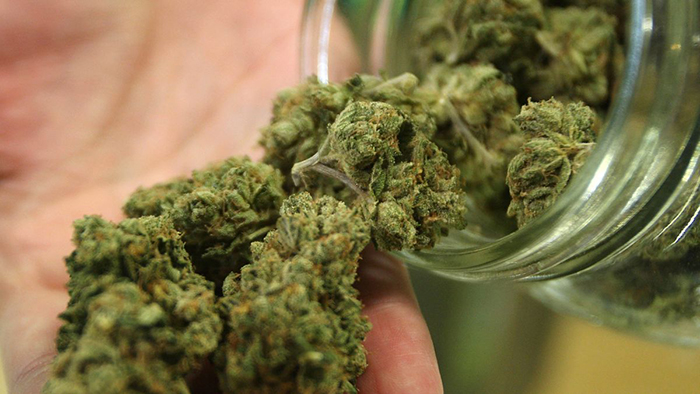In two weeks, voters in five states, four of them very conservative, will decide whether to legalize weed. If all five measures pass, we will be just one state short of half the country having legal, adult-use pot. Population-wise, it would be over half (thanks in part to Washington, DC and two territories also being legal). Accounting for medical marijuana, pot is already legal in one form or another for almost the entire country.
In the meantime, polling indicates that Americans’ support for legal pot only continues to grow. Two-thirds of the country now wants pot to be legal for all adults. And President Joe Biden, who had been a lifelong drug warrior, has now begun to move on decriminalization.
Mitch McConnell and the other Republicans who like to use weed as a political cudgel—usually to paint Democrats as flighty airheads—will likely keep up that strategy for as long as they can. But at this point, federal legalization seems inevitable, especially given that a fair number of Republicans are pro-legalization. It’s only a question of when.
Or so it would seem, anyway. If the U.S. political environment were as relatively sane as it had been before the ascent of Donald Trump, weed might be legal already. But most forecasts have Republicans retaking the House on the same day those voter initiatives are being decided, and the Republicans who are essentially running the party now—your Marjorie Taylor Greenes and your Lauren Boeberts—aren’t the type who like to “set policy” or “pass laws.” And when they do, it will be to outlaw abortion and jail teachers who mention that gay people exist.
And while most forecasts have Democrats keeping the Senate (which would prevent a lot of the bad stuff from happening), the Republicans will probably retain enough seats to keep their filibuster. In that case, McConnell’s power to nix legalization will remain intact, and there doesn’t seem to be any reason (from his ghoulish perspective) for him to give in on the question.
Meanwhile, the GOP’s contempt for the rule of law and the will of the people is operant outside of DC too. Voters in South Dakota, one of the states with a November legalization measure on the ballot next month, had already approved legal weed, with a 54% majority in 2020. Then the state Supreme Court nullified the result on technical grounds. Among those backing the lawsuit that led to the decision was the state’s Republican governor, Kristi Noem. Advocates say the new initiative is simpler and more bulletproof, but that doesn’t mean prohibitionists won’t find a way.
Like South Dakota, three of the other four states with ballot measures are pretty dark red: North Dakota, Arkansas and Missouri. (People in another deep-red state, Oklahoma, will vote on an adult-use initiative in March.) Prohibitionists are gearing up to subvert the vote in any state that passes such a measure. The fifth state is Maryland, where the initiative is expected to pass and likely won’t be successfully interfered with, but in the others, there will likely be court fights.
Still, a victory in all five states, or even in just three or four of them, would add huge momentum to the move to legalize federally. For California cannabis businesses, that would open up new markets and make doing business far easier in all kinds of ways (for instance, even now, banks and other suppliers of goods and services are hesitant to do business with an industry that is a de facto criminal conspiracy in the eyes of the federal government; that will change with federal legalization). It would likely also benefit California consumers who might pay lower prices and have access to a wider array of products.
While right-wing lunacy might keep Washington in gridlock for at least the next couple of years, it’s possible that, after that, the federal government will be ready to catch up to where the nation is. In a couple of weeks, voters in the reddest of red states could add to the momentum that is—painfully slowly—getting us there.
Originally posted on EastBayExpress.com








